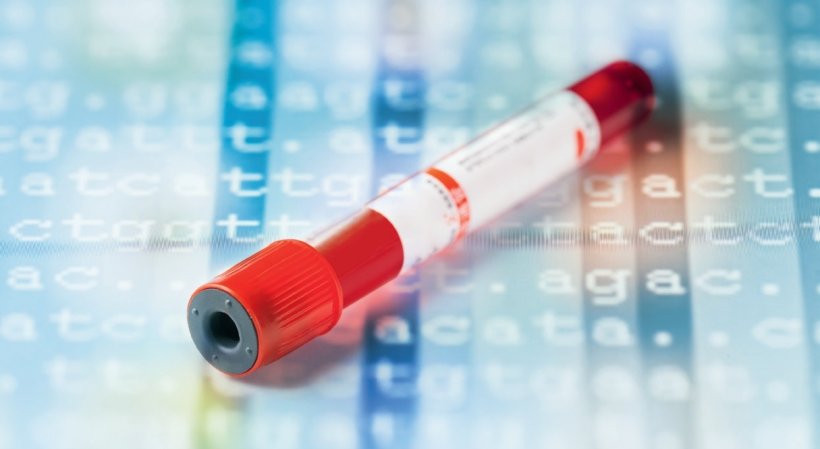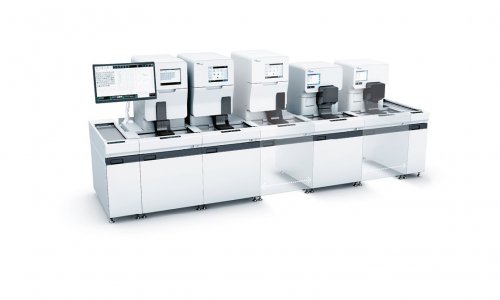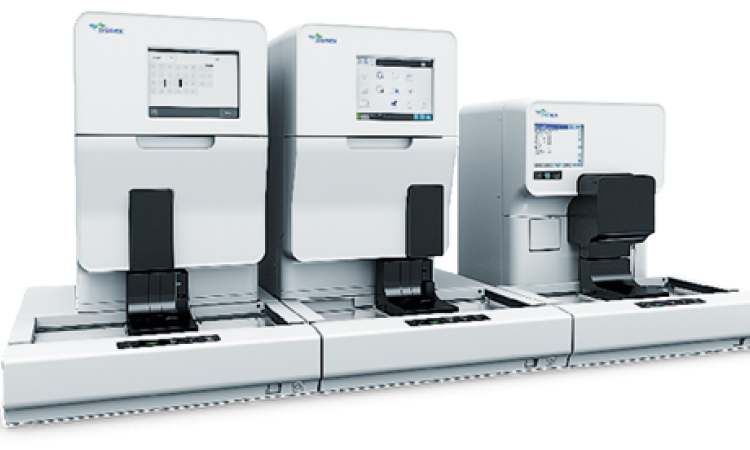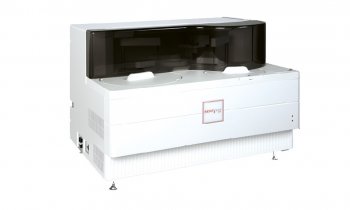
Image source: Sysmex Inostics
News • Feasibility study
Liquid biopsy to complement early breast cancer screening
Investigators from the Biomedical Research Institute of Malaga [(IBIMA)-CIMES-UMA, Malaga Spain] and collaborators have published the first pilot study to examine the use of a non-invasive liquid biopsy in early diagnosis of breast cancer.
This study, which was published in the Journal of Clinical Medicine, was unique in that the ctDNA analyses was performed before any invasive diagnostic procedure or treatment. To achieve their goal, the researchers utilized Sysmex Inostics’ novel SafeSEQ next-generation sequencing cell-free DNA technology. The SafeSEQ liquid biopsy technology has shown sensitivity down to five mutant molecules in a background of ten thousand normal ones (or 0.05% mutant allele frequency also known as MAF). Utilizing the genes TP53 and PIK3CA, which are commonly mutated in breast cancer, investigators compared the results of traditional standard-of-care tissue biopsy with those of liquid biopsy to determine the degree to which a highly sensitive assay might complement clinical assessment of disease. Of the 13 mutations detected in 10 of the primary breast cancer patients (out of a total of 29 samples) 8 mutations had a variant allele frequency less than 0.39%.
Recommended article

Article • Heard at the EBCC11
Identifying circulating tumour cells with liquid biopsy
Liquid biopsies can increasingly help diagnose and monitor breast cancer, and tracking circulating tumour cells (CTC) in metastatic patients could prove effective in these applications and treatment planning. Efforts are currently underway to demonstrate CTC clinical use and much can be learned from completed studies in prostate cancer, speaker Michail Ignatiadis MD PhD highlighted in a dedicated…
We have shown in this study how important a sensitive technology is for early detection of breast cancer, as trace amounts of circulating tumor DNA may be lost by the detection method leading to false-negative result
Emilio Alba
Comparing tissue to liquid biopsy, eight patients had detectable mutations in ctDNA with concordant results between tissue and plasma. Liquid biopsy testing with SafeSEQ detected an additional three patients with ctDNA mutations that were not present in the tissue. The breast cancer samples with detected ctDNA biomarkers were significantly associated with a lower patient age, a higher tumor size, and higher imaging score (indicating higher likelihood of neoplastic disease).
“We have shown in this study how important a sensitive technology is for early detection of breast cancer, as trace amounts of circulating tumor DNA may be lost by the detection method leading to false-negative results”, said Dr. Emilio Alba, senior author of the Biomedical Research Institute of Malaga. “Studies of this kind have not been attempted before due to limitations of the technology, and it is great to see Sysmex Inostics leading the path forward for early detection.”
Source: Sysmex Inostics
04.09.2019
- breast cancer (626)
- early diagnosis (219)
- laboratory (1111)
- research (3487)
- screening (218)
- studies (1093)











